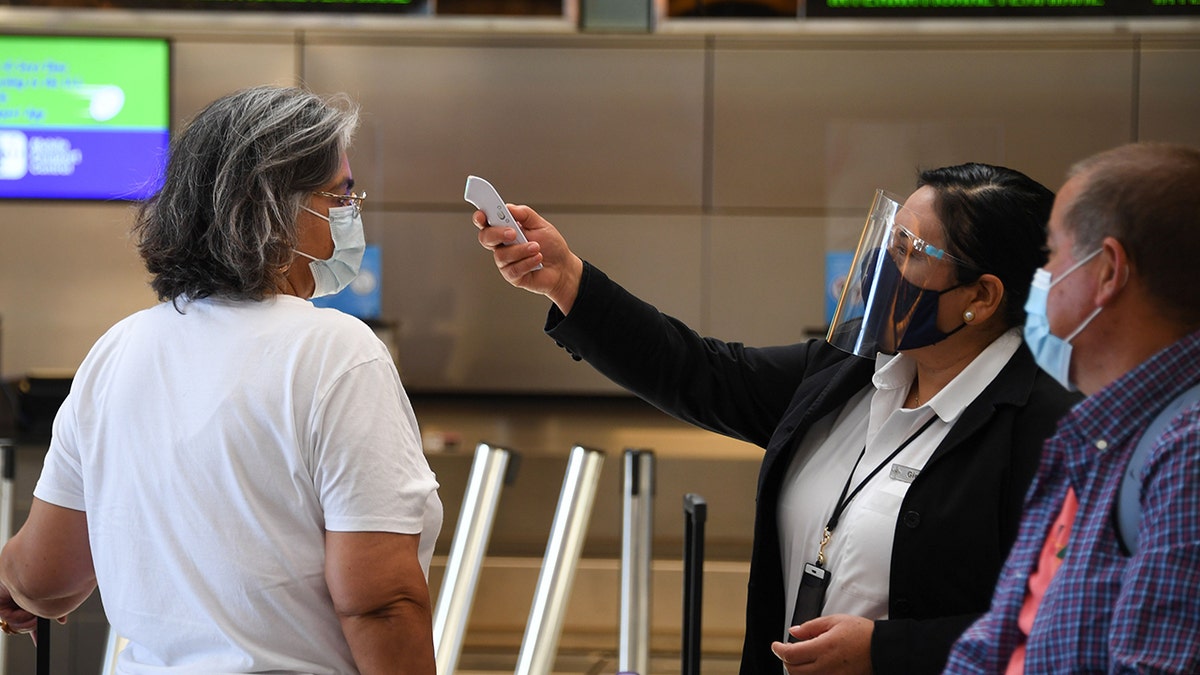Airlines may request passengers prove coronavirus status
Kurt 'The CyberGuy' Knutsson discusses on ‘Fox and Friends Weekend’ traveling amid the coronavirus pandemic.
The CEOs of major U.S. airlines might be against it, but pre-flight COVID testing could be a valuable tool for preventing potential exposure among travelers, according to a new study from Harvard University.
Negative test results are not currently required of U.S. passengers traveling domestically. Earlier this week, however, the Centers for Disease Control and Prevention (CDC) confirmed it was considering such a measure in its ongoing efforts to detect asymptomatic cases. In an interview with Axios, Transportation Secretary Pete Buttigieg also mentioned an "active conversation" between the Biden administration and the CDC about the matter.
Ed Bastian, the CEO of Delta Air Lines, and Gary C. Kelly, CEO of Southwest, have each separately announced their opposition to the idea, claiming that such a requirement would be hard to implement while also further hindering the air travel industry.
However, researchers at Harvard say that pre-flight testing would be an important and more effective way to reduce transmission of COVID-19 as more people begin taking to the skies in the months ahead.
TSA: TRAVELERS WHO VIOLATE MASK MANDATE MAY FACE STEEP FINES
"Body temperature screening for COVID-19 in airport settings has marginal value, as fever is not a uniform symptom among those with the disease," reads a summary of the study, the results of which were presented by the Harvard T.H. Chan School of Public Health earlier this week. "Other potential screening methods are limited by operational concerns or sensitivity, such as measuring decreases in oxygen saturation or changes in smell or taste."
Testing, however, "can quickly and efficiently identify those with infections and stop them from undergoing activities that could expose others, including potential travel," the authors note.

"Body temperature screening for COVID-19 in airport settings has marginal value, as fever is not a uniform symptom among those with the disease," reads a summary of the study, the results of which were presented by the Harvard T.H. Chan School of Public Health earlier this week. (Robyn Beck/AFP via Getty Images)
The study specifically refers to rapid tests, including "emerging" testing methods that may be cheaper, and easier to implement, than current diagnostic tests.
CLICK HERE TO SIGN UP FOR OUR LIFESTYLE NEWSLETTER
While endorsing such testing, researchers at Harvard also acknowledged the challenges of enacting this policy on a large scale.
"The provision of rapid viral testing at airports requires careful attention to a realistic assessment of implementation, as well as sensitive matters of privacy, legal considerations and the logistical challenges of isolating and caring for newly identified positive cases," the study’s summary notes, while also suggesting that such a policy would require coordination from airports, airline operators, and health departments from the federal to local level.
CLICK HERE TO GET THE FOX NEWS APP
In addition to its endorsement of rapid testing, the Harvard study suggests a number of other strategies as part of a "layered approach" to reducing coronavirus transmission stemming from the travel industry, such as: creating physical barriers at certain airport checkpoints; the continued enforcement of physical distancing; proper ventilation in airport terminals; and lowered occupancy on airport shuttles or trams.
The study also noted the importance of continued compliance with mask mandates — calling it a "first order measure to mitigate transmission" — even after the vaccine availability becomes more widely available.









































